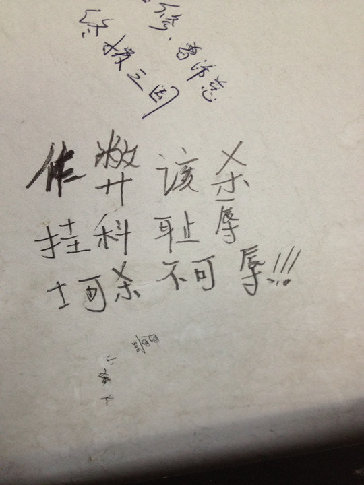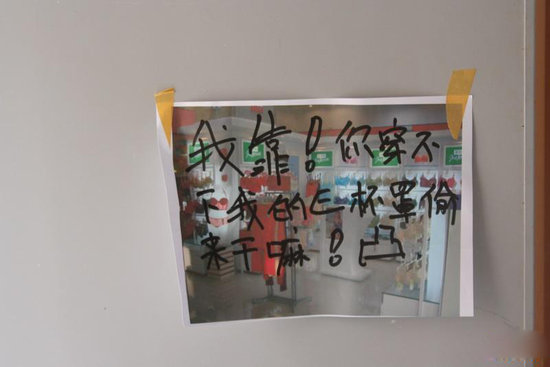第三部分:阅读理解(共15小题;每小题2分,满分30分)
请认真阅读下列短文,从短文后各题所给的A、B、C、D四个选项中,选出最佳选项,并在答题卡上将该项涂黑。

56. The leaflet is to inform visitors of the Park’s________
A. advanced management
B. thrill performances
C. entertainment facilities
D. thoughtful services
57. A visitor to the Park can________.
A. rent a stroller outside Front Gate
B. ask for first aid by Thunder Run
C. smoke in the Water Park
D. leave his pet at KidZville
B
We’ve considered several ways of paying to cut inline: hiring line standers, buying tickets from scalpers (票贩子), or purchasing line cutting privileges directly from, say, an airline or an amusement park. Each of these deals replaces the morals of the queue (waiting your turn) with the morals of the market (paying a price for faster service).
Markets and queues—paying and waiting—are two different ways of allocating things, and each is appropriate to different activities. The morals of the queue, “First come, first served,”have an egalitarian(平等主义的) appeal. They tell us to ignore privilege, power, and deep pockets.
The principle seems right on play grounds and at bus stops. But the morals of the queue do not govern all occasions. If I put my house up for sale, I have no duty to accept the first offer that comes along, simply because it’s the first. Selling my house and waiting for a bus are different activities, properly governed by different standards.
Sometimes standards change, and it is unclear which principle should apply. Think of the recorded message you hear, played over and over, as you wait on hold when calling your bank:“Your call will be answered in the order in which it was received.”This is essential for the morals of the queue. It’s as if th ecompany is trying to ease our impatience with fairness.
But don’t take the recorded message too seriously. Today, some people’s calls are answered faster than others. Call center technology enables companies to“score”incoming call sand to give faster service to those that come from rich places. You might call this telephonic queue jumping.
Of course, markets and queues are not the only ways of allocating things. Some goods we distribute by merit, others by need, still others by chance. However, the tendency of markets to replace queues, and other non-market ways of allocating goods is so common in modern life that we scarcely notice it anymore. It is striking that most of the paid queue-jumping schemes we’ve considered—at airports and amusement parks, in call centers, doctors’offices, and national parks—are recent developments, scarcely imaginable three decades ago. The disappearance of the queues in these places may seem an unusual concern, but these are not the only places that markets have entered.

58. According to the author, which of the following seems governed by the principle“First come, first served”?
A. Taking buses.
B. Buying houses.
C. Flying with an airline.
D. Visiting amusement parks.
59. The example of the recorded message in Paragraphs 4 and 5 illustrates.
A. the necessity of patience in queuing
B. the advantage of modern technology
C. the uncertainty of allocation principle
D. the fairness of telephonic services
60. The passage is meant to .
A. justify paying for faster services
B. discuss the morals of allocating things
C. analyze the reason for standing in line
D. criticize the behavior of queue jumping
C
If a diver surfaces too quickly, he may suffer the bends.Nitrogen(氮) dissolved(溶解) in his blood is suddenly liberated by the reduction of pressure. The consequence, if the bubbles (气泡)accumulate in a joint, is sharp pain and abent body—thus the name.If the bubbles form in his lungs or his brain, the consequence can be death.
Other air-breathing animals also suffer this decompression(减压) sickness if they surface too fast: whales, for example. And so, long ago, did ichthyosaurs. That these ancient sea animals got the bends can be seen from their bones. If bubbles of nitrogen form inside the bone they can cut off its blood supply. This kills the cells in the bone, and consequently weakens it, sometimes to the point of collapse. Fossil (化石)bones that have caved in on them selves are thus a sign that the animal once had the bends.
Bruce Rothschild of the University of Kansas knewall this when he began a study of ichthyosaur bones to find out how widespread the problem was in the past. What he particularly wanted to investigate was how ichthyosaurs adapted to the problem of decompression over the 150 million years. To this end, he and his colleagues traveled the world’s natural-history museums, looking at hundreds of ichthyosaurs from the Triassic period and from the later Jurassic and Cretaceous periods.
When he started, he assumed that signs of the bends would be rarer in younger fossils, reflecting their gradual evolution of measures to deal with decompression. Instead, he was astonished to discover the opposite. More than 15% of Jurassic and Cretaceous ichthyosaurs had suffered the bends before they died, but not a single Triassic specimen(标本) showed evidence of that sort of injury.
If ichthyosaurs did evolve an anti-decompression means, they clearly did so quickly—and, most strangely, they lost it afterwards. But that is not what Dr Rothschild thinks happened. He suspects it was evolution in other animals that caused the change.
Whales that suffer the bends often do so because they have surfaced to escape a predator (捕食动物) such as a large shark. One of the features of Jurassic oceans was an abundance of large sharks and crocodiles, both of which were fond of ichthyosaur lunches. Triassic oceans, by contrast, were mercifully shark- and crocodile-free. In the Triassic, then, ichthyosaurs were top of the food chain. In the Jurassic and Cretaceous, they were prey(猎物) as well as predator—and often had to make a speedy exit as a result.
61. Which of the following is a typical symptom of the bends?
A. A twisted body.
B. A gradual decrease in blood supply.
C. A sudden release of nitrogen in blood.
D. A drop in blood pressure.
62. The purpose of Rothschild’s study is to see________ .
A. how often ichthyosaurs caught the bends
B. how ichthyosaurs adapted to decompression
C. why ichthyosaurs bent their bodies
D. when ichthyosaurs broke their bones
63. Rothschild’sfindingstatedinParagraph4 .
A. confirmed his assumption
B. speeded up hisresearch process
C. disagreed with his assumption
D. changed his research objectives
64. Rothschild might have concluded that ichthyosaurs.
A. failed to evolve an anti decompression means
B. gradually developed measures against the bends
C. died out because of large sharks and crocodiles
D. evolved an anti decompression means but soon lost it
D
Mark Twain has been called the inventor of the American novel. And he surely deserves additional praise: the man who popularized the clever literary attack on racism.
I say clever because anti-slavery fiction had been the important part of the literature in the years before the Civil War. H. B. Stowe’s Uncle Tom’s Cabin is only the most famous example. These early stories dealt directly with slavery. With minor exceptions, Twain planted his attacks on slavery and prejudice into tales that were on the surface about something else entirely. He drew his readers into the argument by drawing them into the story.
Again and again, in the postwar years, Twain seemed forced to deal with the challenge of race. Consider the most controversial, at least today, of Twain’s novels, Adventures of Huckleberry Finn. Only a few books have been kicked off the shelves as often as Huckleberry Finn, Twain’s most widely read tale. Once upon a time, people hated the book because it struckthemas rude. Twain himself wrote that those who banned the book considered the novel “trash and suitable only for the slums(贫民窟).” More recently the book has been attacked because of the character Jim, the escaped slave, and many occurrences of the word nigger. (The term Nigger Jim, for which the novel is often severely criticized, never appears in it.)
But the attacks were and are silly—and miss the point. The novel is strongly anti-slavery. Jim’s search through the slave states for the family from whom he has been forcibly parted is heroic. As J. Chadwick has pointed out, the character of Jim was a first in American fiction—a recognition that the slave had two personalities, “the voice of survival within a white slave culture and the voice of the individual: Jim, the father and the man.”
There is much more. Twain’s mystery novel Pudd’nhead Wilson stood as a challenge to the racial beliefs of even many of the liberals of his day. Written at a time when the accepted wisdom held Negroes to be inferior (低等的) to whites, especially in intelligence, Twain’s tale centered in part around two babies switched at birth. A slave gave birth to her master’s baby and, for fear that the child should be sold South, switched him for the master’s baby by his wife. The slave’s light-skinned child was taken to be white and grew up with both the attitudes and the education of the slave-holding class. The master’s wife’s baby was taken for black and grew up with the attitudes and intonations of the slave.
The point was difficult to miss: nurture (养育), not nature, was the key to social status. The features of the black man that provided the stuff of prejudice—manner of speech, for example—were, to Twain, indicative of nothing other than the conditioning that slavery forced on its victims.
Twain’s racial tone was not perfect. One is left uneasy, for example, by the lengthy passage in his autobiography (自传) about how much he loved what were called “nigger shows” in his youth—mostly with white men performing in black-face—and his delight in getting his mother to laugh at them. Yet there is no reason to think Twain saw the shows as representing reality. His frequent attacks on slavery and prejudice suggest his keen awareness that they did not.
Was Twain a racist? Asking the questioning the 21 stcentury is as wise as asking the same of Lincoln. If we read the words and attitudes of the past through the “wisdom” of the considered moral judgments of the present, we will find nothing but error. Lincoln, who believed the black man the inferior of the white, fought and won a war to free him. And Twain, raised in a slave state, briefly a soldier, and inventor of Jim, may have done more to anger the nation over racial injustice and awaken its collective conscience than any other novelist in the past century.
65. How do Twain’s novels on slavery differ from Stowes?
A. Twain was more willing to deal with racism.
B. Twain’s attack on racism was much less open.
C. Twain’s themes seemed to agree with plots.
D. Twain was openly concerned with racism.
66. Recent criticism of Adventures of Huckleberry Finn arose partly from its_____.
A. target readers at the bottom
B. anti slavery attitude
C. rather impolite language
D. frequent use of “nigger”
67. What best proves Twain’s anti slavery stand according to the author?
A. Jim’s search for his family was described in detail.
B. The slave’s voice was first heard in American novels.
C. Jim grew up into a man and a father in the white culture.
D. Twain suspected that the slaves were less intelligent.
68. The story of two babies switched mainly indicates that .
A. slaves were forced to give up their babies to their masters
B. slaves babies could pickup slave holders‵ way of speaking
C. blacks‵ social position was shaped by how they were brought up
D. blacks were born with certain features of prejudice
69. What does the under lined word“they” in Paragraph 7 refer to?
A. The attacks.
B. Slavery and prejudice.
C. White men.
D. The shows.
70. What does the author mainly argue for?
A. Twain had done more than his contemporary writers to attack racism.
B. Twain was an admirable figure comparable to Abraham Lincoln.
C. Twain’s works had been banned on unreasonable grounds.
D. Twain s works should be read from a historical point of view.

 你现在的位置:
你现在的位置: 高考试卷
高考试卷 图片新闻
图片新闻




 热门试卷
热门试卷 教学视频
教学视频











